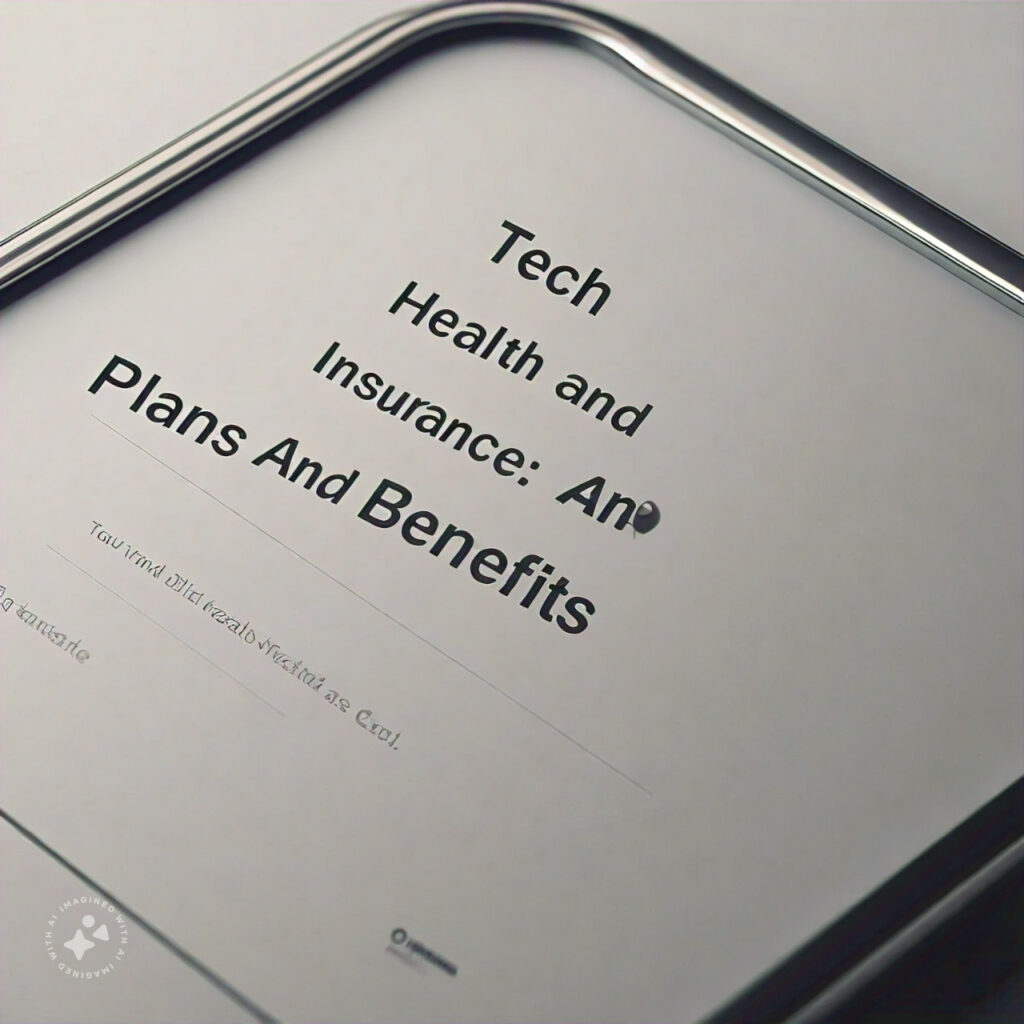Tech Health and Insurance is the use of digital tools in upgrading the insurance process, from purchase of policies to claims filing. Related technology of health also helps insurance corporations or companies in assessing the risk determination for providing coverage options based on correctly corrected data obtained from devices and medical records
.In today’s changing landscape, the length and breadth of our lifestyles are all being touched by technology-health and insurance included. Now, merging technology with healthcare has led to new opportunities in monitoring, improving, and caring for our health and wellbeing. At the same time, solutions in the world of insurance have sprouted to safeguard individuals and businesses against these emergent high-tech enabled realities. This article will be more focused on Tech Health and Insurance, on how it’s reshaping the future-from solutions like Solo Insurance to platforms like Ztec100.com that make navigation through insurance slightly easier.
Table of Contents
The Role of Technology in Health and Insurance
Tech Health and Insurance: A Growing Connection

Technology and health go hand in hand. And we are seeing better ways of keeping track of our health with wearable fitness trackers, doing more visits to doctors remotely through telemedicine, or receiving the data collected at the moment in which treatment is sought, available everywhere. In relation to insurance, how does this change everything?
Tech Health and Insurance is the use of digital tools in upgrading the insurance process, from purchase of policies to claims filing. Related technology of health also helps insurance corporations or companies in assessing the risk determination for providing coverage options based on correctly corrected data obtained from devices and medical records.
How Technology Improves Health Monitoring
However, there are significant improvements in monitoring health with the aid of smartwatches, health apps, and telemedicine. Wearable technology is very important in monitoring critical indicators such as heart rate, blood pressure, and sleep pattern. This information keeps individuals on top of their health while, at the same time, giving good returns to insurance companies.
By using data from wearable devices, the insurer can make a better estimation of the level of health risk to which he is exposed. Thus, an active and healthy individual may pay lower amounts of premiums.
Table: Examples of Tech Health Tools and Their Impact on Insurance
| Tech Health Tool | Impact on Health | Insurance Benefits |
| Smartwatches (e.g., Apple Watch) | Track heart rate, activity levels | Insurance companies offer lower premiums for active people |
| Health apps (e.g., MyFitnessPal) | Track diet, exercise, and weight | Personalized insurance plans based on lifestyle data |
| Telemedicine | Remote doctor consultations | Faster, more efficient claims processing |
How Insurance Adapts to Tech Health
All this health-related information through technology is compelling insurance companies to evolve better, accurate premium calculations, and provide coverage. Some insurers offer discounts to their policyholders who can share their health data coming from wearables. Encouraging healthy habits could reduce claims and also make the plan more affordable.
In addition, Tech Health and Insurance can present business opportunities with tailor-made insurance products. For example, a tech firm that has remote employees can require tailored policies that embrace the health and safety of employees irrespective of the location of the place of work.
Solo Insurance: A Solution for Independent Workers

What is Solo Insurance?
With more people working independently, whether as freelancers or contractors, traditional insurance plans don’t always meet their needs. Solo Insurance is designed specifically for these independent workers. It provides coverage for work-related injuries, health risks, and liability without the need for a corporate-backed policy.
Freelancers, self-employed workers, and gig economy workers, in particular, benefit from Solo Insurance. Since these individuals don’t have access to employer-provided coverage, Solo Insurance gives them peace of mind knowing that their health and work are protected.
Why Solo Insurance is Important
Solo Insurance is essential because many independent workers operate without any form of coverage. This exposes them to financial risk if they are injured, fall ill, or face legal issues related to their work. By choosing Solo Insurance, freelancers can access affordable and flexible policies that meet their unique needs.
For example, a freelance web developer may not require the same insurance as a construction worker, but both need protection. Solo Insurance allows workers to select plans that are most suitable for their profession.
How Solo Insurance Integrates with Tech Health
Just like traditional insurers, providers of Solo Insurance use health data from tech tools to create personalized policies. Independent workers can share data from fitness trackers and health apps to receive better coverage rates and incentives for maintaining a healthy lifestyle.
| Benefits of Solo Insurance | How Tech Health Enhances It |
| Covers health risks for independent workers | Wearables help monitor health and taylor insurance plans |
| Protects against liability and work-related injuries | Apps and data help insurers evaluate risk more accurately |
Ztec100.com: Simplifying Insurance with Technology
What is Ztec100.com?
In a world where insurance can be complicated, platforms like Ztec100.com make it easier to understand and access the right policies. Ztec100.com is a digital platform that helps individuals and businesses navigate the often confusing world of insurance. It provides detailed comparisons of different insurance policies, including Solo Insurance, health insurance, and more.
By leveraging the power of technology, Ztec100.com simplifies the insurance buying process. It gathers information from multiple insurers and provides recommendations based on the user’s specific needs. This is especially useful for freelancers or small business owners who may not have the time or knowledge to evaluate dozens of insurance options.
How Ztec100.com Enhances Tech Health and Insurance
Ztec100.com doesn’t just help with finding health insurance—it also integrates with tech health tools to provide even more accurate recommendations. The platform uses data from wearables and health apps to recommend policies that fit a user’s lifestyle and health profile. By taking into account data like activity levels or pre-existing conditions, Ztec100.com ensures users are matched with the best possible insurance plans.
For example, someone who regularly exercises and tracks their health data might be recommended a plan that rewards them for staying healthy. Meanwhile, someone who travels frequently may be directed to policies that include global health coverage.
Ztec100.com and Solo Insurance
For freelancers and gig workers, Ztec100.com provides a user-friendly way to compare Solo Insurance options. The platform allows users to filter insurance policies based on their profession, lifestyle, and personal needs. Whether you’re an independent worker looking for health coverage or liability protection, Ztec100.com simplifies the search process and ensures you get the best coverage at the right price.
The Future of Tech Health and Insurance
Trends in Tech Health and Insurance
The future of Tech Health and Insurance is bright, with new trends emerging every year. Here are a few trends that are shaping the industry:
- Wearable Technology: More insurance companies are using data from wearable technology to adjust premiums and offer rewards for healthy habits.
- AI-Powered Insurance: Artificial intelligence (AI) is being used to assess risks, process claims, and personalize policies.
- Telemedicine Integration: Telemedicine services are becoming a staple in health insurance policies, allowing policyholders to access healthcare from anywhere.
- Blockchain for Secure Data: Blockchain technology is being used to securely store and share medical and insurance data, ensuring privacy and accuracy.
Challenges in Tech Health and Insurance
Despite the many benefits, there are also challenges in integrating technology with health and insurance:
- Data Privacy: As more personal health data is collected and shared with insurance companies, there are concerns about privacy and data security.
- Accessibility: Not everyone has access to the latest tech health tools, which could lead to unequal access to personalized insurance plans.
- Regulation: As technology evolves, regulations must adapt to ensure that both insurers and policyholders are protected.
Conclusion:
Embracing Tech Health and Insurance for a Better Future
Lastly, integrating the technology with health and insurance made the protection mechanisms different. Tech Health and Insurance is linking sophisticated health monitoring tools and complicated insurance policies to tailor-made options that are efficient and affordable.
Solo Insurance will be a safety net for independent workers; this is what traditional insurance plans don’t take into consideration. On platforms such as Ztec100.com, it is easy to find the right type of insurance to use, but the use of technology means that it’s going to be tailored to cover individual needs.
Changes will only make the world of Tech Health and Insurance better, so staying tuned to the latest trends and tools will only better those choices that they make for their well-being and financial security. We can look forward to a future where health and insurance are more aligned and better accessible and effective than ever in our history as we accept these changes.
FAQs: Tech Health and Insurance
1. What is Tech Health and Insurance?
Tech Health and Insurance refers to the integration of technology in healthcare and insurance systems. It uses digital tools like wearables, health apps, and telemedicine to monitor health, streamline insurance processes, and offer personalized coverage.
2. How do wearable devices impact insurance plans?
Wearable devices, such as fitness trackers, monitor your health and activity levels. Insurance companies may use this data to offer personalized plans, reward healthy behaviors, and adjust premiums accordingly.
3. What is Solo Insurance?
Solo Insurance is designed for independent workers, freelancers, and gig economy employees. It provides health, liability, and work-related injury coverage for individuals who don’t have access to employer-provided insurance.
4. How does Ztec100.com help with insurance?
Ztec100.com is a platform that helps individuals and businesses compare insurance options. It uses technology to provide personalized recommendations based on the user’s health, lifestyle, and professional needs, making the insurance process easier.
5. Why is Tech Health important in the insurance industry?
Tech Health is important because it allows insurers to assess risks more accurately, offer better policies, and incentivize healthy lifestyles. It also helps policyholders access medical care remotely through telemedicine and manage their insurance more efficiently.
6. Can tech health tools reduce insurance premiums?
Yes, tech health tools like wearables can help reduce insurance premiums. If a policyholder maintains a healthy lifestyle, as shown through their data, insurers may offer discounts or rewards for reduced health risks.
7. What are the main trends in Tech Health and Insurance?
The main trends include the use of wearable technology, AI-powered insurance, telemedicine, and blockchain for secure data storage. These trends are making insurance more personalized, efficient, and secure.
8. Are there any challenges with Tech Health and Insurance?
Some challenges include data privacy concerns, unequal access to technology, and the need for updated regulations to keep up with the advancements in the insurance industry.
9. Who can benefit from Solo Insurance?
Freelancers, gig workers, self-employed professionals, and independent contractors can benefit from Solo Insurance. It provides coverage tailored to their unique needs, ensuring they have protection for their health, liability, and work-related risks.
10. Is Tech Health and Insurance suitable for small businesses?
Yes, small businesses can benefit from Tech Health and Insurance. By using technology to monitor employee health and streamline insurance processes, small businesses can reduce costs and offer better coverage options to their workers.

